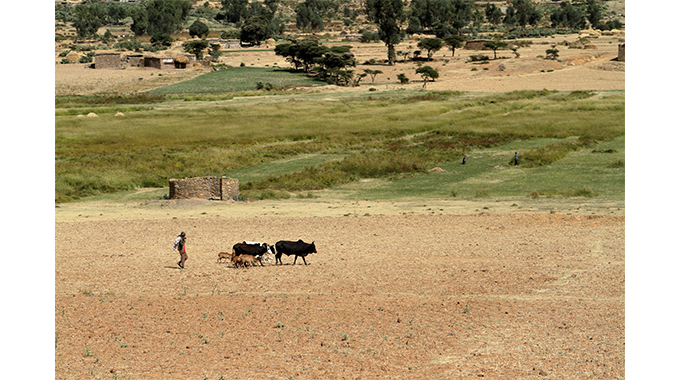Government rolls out schools radio lessons programme

Mashudu Netsianda, Online Reporter
GOVERNMENT has rolled out the fifth phase of radio lessons programme for early childhood development (ECD), primary and secondary school classes as part of an alternative education platform to maximise on learning.
Recently, the Government with the assistance of the United Nations Children’s Fund (UNICEF), distributed more than 200 000 radios to rural communities to ensure that children continued to learn during the prolonged closure of schools as the country battled to contain rising Covid-19 related deaths and infections.
Schools opened on Tuesday for the second term which runs up to August 4. The radio lessons programme is being spearheaded by the Ministry of Primary and Secondary Education in partnership with the Ministry of Information, Publicity and Broadcasting Services, UNICEF and FACT Zimbabwe, a local Christian national development NGO.
In a statement, the Ministry of Primary and Secondary Education said the lessons for ECD to Form 2 learners have since Monday been aired on Radio Zimbabwe, National FM and Classic 263 and will continue until May 15, 2022 under the fourth schedule of the fifth phase of the programme.
“The Ministry of Primary and Secondary Education in conjunction with ZBC, UNICEF and FACT Zimbabwe is rolling out the fifth phase of radio lessons as part of an alternative learning platform,” read the statement.
“Lessons for this fourth schedule will be aired from May 2 to May 15, 2022. Thereafter, another schedule will be released. Parents, guardians and teachers are advised to familiarise themselves with the schedule so that they may assist learners as much as possible.”
The ministry said another schedule will be released upon expiry of the stated radio lessons.
The Ministry’s director of communications and advocacy Mr Taungana Ndoro said radio lessons will continue to be aired despite the reopening of schools as they have proved to be an effective way in the country’s education delivery system.
“We are continuing with radio lessons because our thrust is to provide quality education for all learners in the country. We want to make sure that all learners benefit through those lessons so that they can catch up following a long break,” he said.
The Ministry of Primary and Secondary Education is working closely with teachers to produce the radio lessons.
Mr Ndoro said the radio lessons are part of the country’s socio-economic development as promulgated by President Mnangagwa to achieve the National Development Strategy 1 (NDS1) and Vision 2030.
“We want to be a middle-income economy by 2030 and the only way to realise that vision is by ensuring that we have provided adequate education to everyone,” he said.
Mr Ndoro said Government is rolling out the programme as part of narrowing the gap between the rich and the poor in terms of access to education, particularly targeting poor children in the rural areas who have no access to technology and money to buy data bundles.
“These radio lessons will ensure that rural learners and those who are from poor backgrounds are not left behind in terms of access to education in line with the NDS1,” he said.
Under the programme, learners in ECD and Grade 1 classes are taught English, Mathematics and Science while those in Grade 6 and 7 classes are taught IsiNdebele, Shona, Heritage Studies, Agriculture, and Mathematics.
Form 1-2 classes are taught Heritage Studies, English, Shona and Business Studies.
The programme was officially launched by the then Primary and Secondary Education Minister Cain Mathema in June 2020 at the Zimbabwe Broadcasting Corporation (ZBC) Montrose Studios in Bulawayo.
When schools closed for the better of last year, pupils, especially examination classes, had to resort to online learning which most rural pupils could not access. This has been blamed for the rural pupils’ poor performance in public examinations last year.
Government then decided to give rural communities radios so that pupils could access radio lessons.
@mashnets








Comments